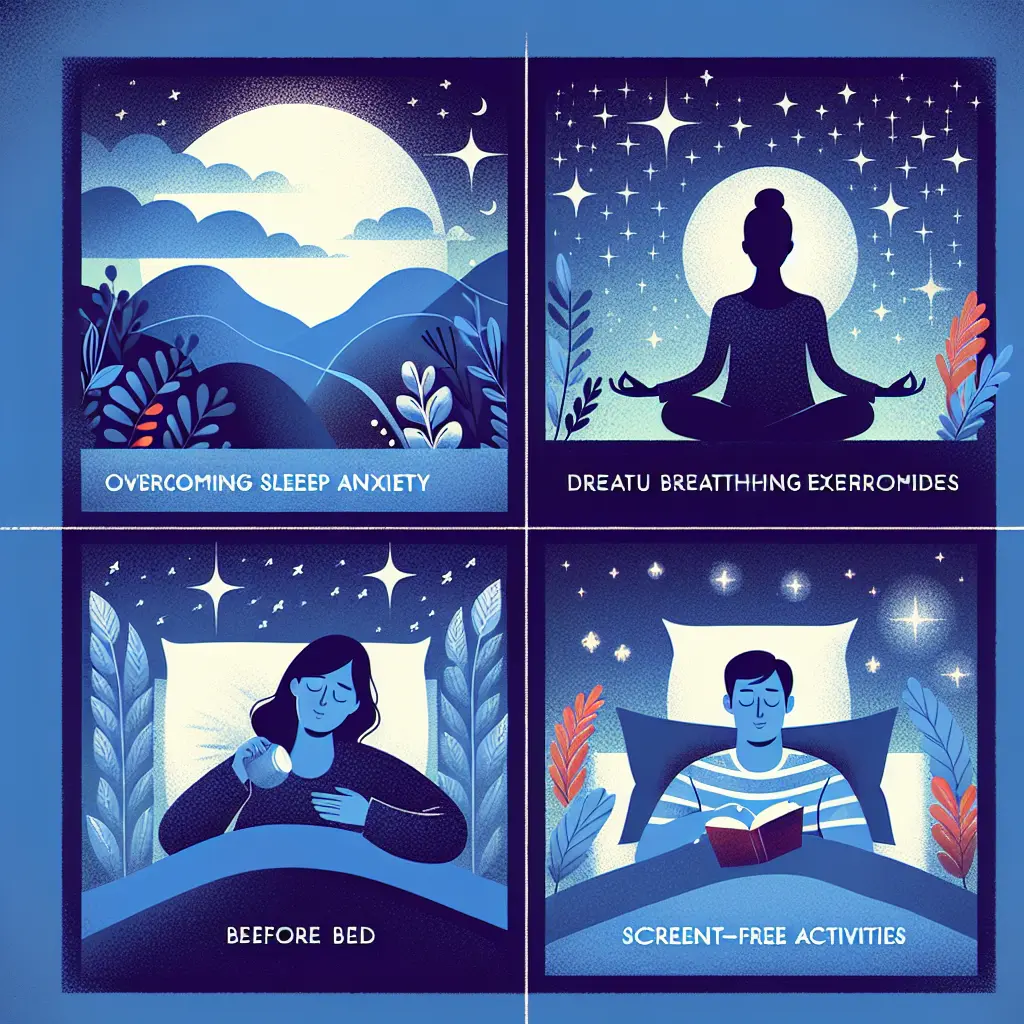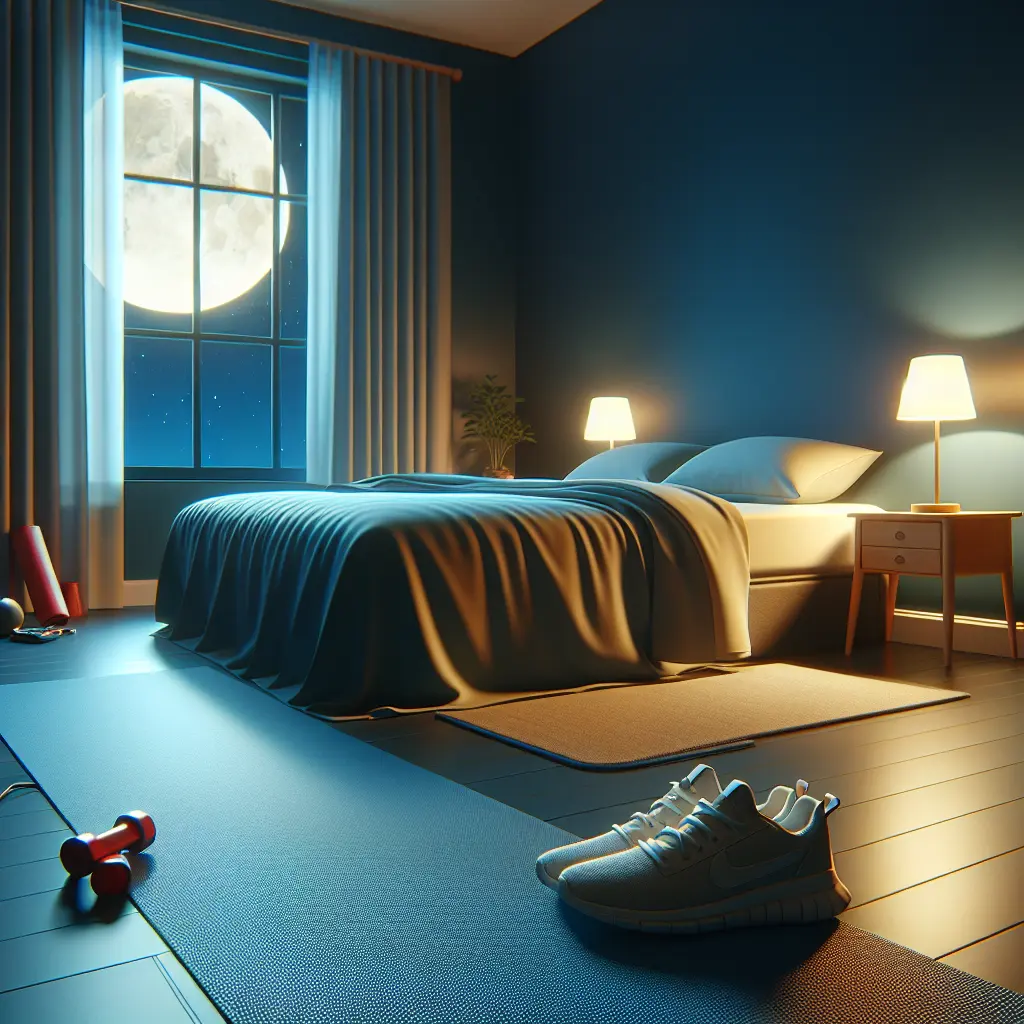In today’s fast-paced, technology-driven world, the connection between sleep hygiene and stress management has never been more crucial. As we grapple with the demands of modern life, tech solutions for better sleep and digital tools for stress management have become essential allies in promoting our well-being. Sleep hygiene is not just about getting enough rest; it’s a cornerstone of managing stress effectively. From sleep apps for relaxation to wearable tech for better sleep, technology offers a myriad of ways to enhance our nightly routines. By optimizing the sleep environment with tech, such as smart devices for stress relief, we can create a sanctuary that promotes restfulness and tranquility.
The role of technology in balancing screen time and sleep hygiene cannot be overstated. Sleep trackers and stress management tools provide insights into our habits, allowing us to make informed decisions about our lifestyles. Moreover, tech-driven sleep hygiene practices encourage us to embrace digital detox for sleep improvement, minimizing the negative impacts of constant connectivity on our rest and stress levels.
For professionals and enthusiasts alike, understanding how to manage stress with technology is pivotal. Sleep hygiene tech tips and improving sleep with gadgets are transforming how we approach relaxation and rejuvenation. As we delve deeper into the intersection of technology impact on sleep and stress, we uncover strategies that not only enhance our nightly rest but also equip us to handle daily pressures more effectively. In the following sections, we'll explore these innovative approaches and uncover how they can revolutionize your path to restful nights and stress-free days.
The relationship between sleep hygiene and stress management is a topic of increasing interest, particularly in our tech-savvy era. As we continue to navigate the complexities of modern life, understanding how technology can aid in both improving sleep and reducing stress becomes essential. Recent innovations showcased at CES 2025 underscore the growing role of technology in enhancing our well-being through improved sleep hygiene and stress management practices.
The Impact of Technology on Sleep Hygiene and Stress Management
Wearable Tech for Better Sleep
Wearable technology has become a cornerstone in the quest for better sleep. Devices such as smartwatches and fitness trackers not only monitor physical activity but also track sleep cycles, offering detailed reports on sleep duration and quality. According to a report from Fox News, these wearables can help users identify disturbances in their sleep patterns, thus enabling them to make informed lifestyle adjustments. This data-centric approach to sleep hygiene provides users with tangible metrics to guide their improvements.
Incorporating relaxation techniques into daily routines is another critical aspect of managing stress with technology. Sleep apps designed for relaxation offer guided meditations, calming soundscapes, and breathing exercises tailored to enhance relaxation before bedtime. These apps are pivotal in creating a conducive environment for sleep, minimizing the anxiety and tension that often precede restlessness. The effectiveness of such apps highlights the synergy between tech solutions for better sleep and overall stress management.
The integration of smart devices into our homes has revolutionized how we approach our sleeping environments. Smart lighting systems, for instance, adjust the intensity and color of light to mimic natural circadian rhythms, promoting more restful sleep cycles. Moreover, smart thermostats can regulate bedroom temperatures to optimal levels for sleep, addressing a common disruptor of nighttime rest.
Smart Devices for Stress Relief
Balancing Screen Time and Sleep Hygiene
Beyond environmental controls, smart devices also play a crucial role in stress relief directly. For instance, smart speakers equipped with virtual assistants can play calming music or sounds upon command, aiding in relaxation before bed. This integration not only enhances the sleep environment but also provides immediate stress relief solutions at the user’s fingertips.
While technology provides tools for improving sleep, it also presents challenges, particularly concerning screen time. Excessive use of screens, especially before bedtime, can disrupt circadian rhythms due to blue light exposure. However, tech-driven sleep hygiene practices advocate for a digital detox before bed to mitigate these effects. For instance, many devices now include night modes that reduce blue light emission, which can be an effective compromise for those who struggle with cutting screen time entirely.
Digital Detox for Sleep Improvement
The concept of digital detox involves consciously reducing or eliminating digital interactions during specific periods, such as before bedtime. This practice not only aids in improving sleep quality but also helps reduce the cognitive load that contributes to stress. Encouragingly, many people are beginning to recognize the benefits of this practice, leading to broader acceptance and implementation of digital detox strategies.
Tech Solutions in Academic Settings
Interestingly, the intersection of sleep hygiene and stress management extends into academic settings as well. A recent study highlights the significant impact of academic stress on students' well-being, with elevated stress levels correlating with poor academic performance and disrupted sleep patterns. Programs like those launched at Old Dominion University are addressing this by integrating wellness strategies into academic life, thereby promoting healthier habits among students source.
The Role of Personalized Tech Solutions
Another exciting development in the realm of sleep hygiene tech tips is the personalization of solutions. With advancements in AI and machine learning, tech solutions are increasingly tailored to individual needs and preferences. Personalized recommendations based on user data are transforming how we approach relaxation and rejuvenation. For instance, personalized soundscapes or meditation routines can cater specifically to an individual’s stress triggers or sleep disruptions.
Conclusion: Ongoing Innovations
As we continue to explore the connection between sleep hygiene and stress management through technology, it is clear that ongoing innovations will play a pivotal role in shaping future strategies. The integration of tech solutions for better sleep and digital tools for stress management reflects a broader trend towards personalized and data-driven approaches to health and well-being.
For more information on these innovations, visit CES 2025 Highlights to discover how these technologies are set to transform our daily routines.
In our increasingly digital world, the intersection of sleep hygiene and stress management through technology offers promising solutions to enhance our well-being. Here are some key takeaways from the latest innovations in this field:
- AI-Powered Sleep Aids: Advanced devices now leverage artificial intelligence to analyze sleep patterns, providing personalized insights to improve rest quality, a fundamental aspect of stress reduction.
- Wearable Technology: Smartwatches and fitness trackers have become essential tools, monitoring sleep cycles and offering detailed reports that help users make informed adjustments to their lifestyles.
- Relaxation Apps: These applications, featuring guided meditations and calming soundscapes, are essential for creating a serene pre-sleep environment, reducing anxiety and tension.
- Smart Home Devices: Innovations like smart lighting and thermostats optimize the sleep environment by mimicking natural circadian rhythms and regulating temperature, addressing common disruptors of restful sleep.
- Digital Detox Practices: Reducing screen time, especially before bed, helps mitigate blue light exposure and reduces cognitive load, enhancing both sleep quality and stress management.
As technology continues to evolve, its role in personalizing health solutions becomes more significant. This ongoing innovation not only transforms how we approach sleep and stress but also underscores the importance of integrating these tech tools into our daily routines for better overall health.
We invite you to share your experiences with tech-driven sleep aids or stress management tools. How have they impacted your daily life? Let's continue this conversation and explore how we can further harness technology to enhance our well-being. Until next time, here's to a future where restful nights and stress-free days become the norm!






Leave a Comment